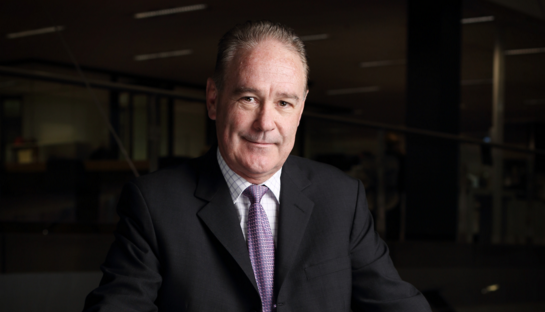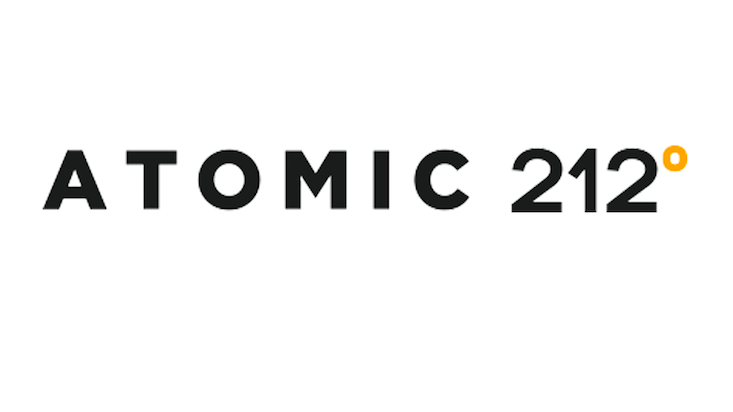Atomic 212’s case against former CEO Jason Dooris heads to court after his house is searched
The complex court battle between Atomic 212 and its former CEO Jason Dooris has ramped up, involving wide-ranging allegations on both sides and a search of Dooris’ home to collect, and search, electronic devices.
Yesterday’s virtual Supreme Court proceedings also revealed that the agency believes Dooris used a fake Atomic 212 email address to “nefarious[ly]” impersonate its chair, Barry O’Brien, and trick the agency’s staff into sending him confidential information such as client and pricing lists.
In court yesterday, Atomic 212’s barrister was frustrated. Dooris – who exited after a Mumbrella investigation revealed he had made misleading claims to win industry awards – had supplied just 28 of the 83 passwords he’s required by the court to hand over.
Those passwords are necessary for an independent computer expert to access and search the many devices collected last month as part of the search on Dooris’ home. On 27 April, the independent computer expert and independent solicitor executed the search order, motivated by Atomic 212’s suspicion that Dooris is in possession of client lists, pricing information, and other confidential material.

Dooris, pictured in 2016
A copy has since been made of the electronic devices, but the case was back in court yesterday, via video link, to determine which of those materials can actually be searched by the computer expert.
Justice Adams ruled that Dooris’ wife’s mobile phone could not be taken and searched. Mrs Dooris arrived at her home as the search order was being carried out last month, and was asked to hand over her phone. She refused and left the premises.
The order related to any electronic device in Dooris’ “possession, custody, or control”, and the judge said it would be “old-fashioned” to consider a woman’s phone to be controlled by her husband.
It is alleged Dooris used “complex and sophisticated” methods like VPNs and fake email accounts to cause damage to his former workplace, so Justice Adams added it is unlikely he would use his wife’s phone to conduct such alleged activities.
A subpoena against Mrs Dooris to produce the phone was also set aside, and Atomic 212 was ordered to pay costs on the issue.
Her Honour allowed Dooris’ voice recorder and his daughter’s Apple watch – found in a safe in the living room – to be searched, but the parties agreed his three children’s remaining devices would not be.
Atomic 212’s barrister, Sandy Dawson, said “there’s no question” that such a search order is life-disrupting and an intrusion on privacy. “That’s why these orders are so hard to get,” he noted.
Dawson added that he hopes Dooris “wakes up to himself” when it comes to his obligation to supply the remaining 55 passwords to the searchable devices. The barrister said Dooris has been claiming not to have those passwords, despite previously claiming he provided them to the independent solicitor. The fact only a fraction of the passwords were provided was not disclosed to Atomic 212’s legal team, or the judge, Dawson said.
“We have been kept in the dark” about the fact that Dooris has “unilaterally carved out 60 accounts on the basis he can’t hand over a password,” Dawson said.
“I understand why you’re troubled,” Justice Adams responded.

O’Brien
Late in the day, Dooris’ barrister confirmed his client will work with the computer expert to reset some passwords.
The media agency’s allegations against its former chief executive were first set out in a statement of claim filed last September, which seeks $300,000 in damages.
Atomic 212 alleges that, in early 2018, Dooris contacted an AdNews journalist twice with false information about a number of accounts, including NIB, Aus Super, Mortgage Choice, and Tennis Australia.
Dooris allegedly told the journalist Atomic 212 had a conflict of interest by having both NIB and Aus Super as clients, when Atomic 212 says it has never had Aus Super as a client.
On the second occasion, Atomic 212 claims Dooris told the journalist a pitch for NIB didn’t go well – Atomic says it did – and that the agency was pitching for the Tennis Australia account, which is also denied by the agency. Furthermore, it’s alleged Dooris told the journalist the agency had lost the Aus Super account, a piece of business Atomic says it never had.
In Dooris’ defence, seen by Mumbrella, he denies trying to plant those false stories. He also denies that he ever falsified award entries, as claimed by Mumbrella.
The media agency also says that more than a year later, in September 2019, Dooris sent envelopes to three employees and one client which contained copies of emails he threatened to send to a long list of recipients, including IPG Mediabrands’ APAC CEO Leigh Terry, ASIC’s fraud unit, and NSW Police’s serious fraud unit. Those emails, the statement of claim says, contained allegations of fraud, kickbacks, and laundering of those kickbacks.
If the threatened emails are sent, it “could result in the loss of many clients”, Atomic 212’s statement of claim reads.
The allegations contained within the emails are false, Atomic 212 and O’Brien say, and the legal action is an attempt to prevent Dooris from publishing claims that Atomic 212: engaged in fraud, takes bribes or kickbacks at the expense of clients, launders those bribes and kickbacks, and warrants investigation by ASIC’s fraud unit or NSW Police’s serious fraud unit.

According to the agency, contacting the AdNews journalist twice and sending the envelopes constitutes three breaches of a deed Dooris signed upon resigning and selling his shares after the award entry scandal, which stops the parties from injuring the other’s reputation. Each breach, according to the deed, results in a required payment of $100,000.
Dooris denies sending the envelopes, but makes a number of serious allegations in his defence. He alleges O’Brien invoiced a client for $550,000 when its media actually cost $230,000, and pocketed the difference. And chief digital officer James Dixon allegedly inflated client invoices by “manually adding a ‘zero'”.
Dooris also claims that, in 2017, O’Brien asked Mark Frain – then director of MCN, now CEO of the rebranded entity, Foxtel Media – for a $600,000 fee in exchange for spending clients’ money with MCN.
And, finally, the defence states that O’Brien helped a brand’s employee with a visa application in exchange for information that helped Atomic 212 pitch for the brand’s account. O’Brien has denied that allegation, the defence notes.
The case – which Justice Adams yesterday acknowledged is “factually dense” – is scheduled to be back in court on 2 June and 15 June, and is set down for a preliminary hearing on 30 July.



 Linkedin
Linkedin
As an observer from a competitive agency I just want to remark what a brilliant job Barry and others have done rebuilding this brand and its credibility – despite the holy mother of all distractions. Well done everyone – its very impressive.
User ID not verified.
Hhmmm,
Why didn’t Dooris just do his job – and not get caught up in all this rubbish. Everyone knows Media Agencies get involved with “additional fees” from Media Owners.
User ID not verified.
How is he managing to find the time for all this, as well as post graduate studies at Oxford!
User ID not verified.
Underbelly : Aus Media Agencies
User ID not verified.
Tip of the iceberg for the entire industry. Fraud and kickbacks have always been rife in media. The revelations will not shock or surprise anybody in agency land or media owners. Clients have suspected and many have known about this for years, but the greased up wheels keep turning because there are so many vested interests making money on the side it’s almost impossible to unravel. The programmatic scandal will hopefully prise open this whole stinking pit – advertisers deserve much better
User ID not verified.
I sense a few clients may be getting an audit underway
User ID not verified.
Barry and team have been through hell and back it sounds. Our dealings with them have always been great and James/Barry are extremely nice, forthright people. All the best to the A212 team through this hell.
User ID not verified.
SO 2017.. how is this still going?
User ID not verified.
Hi Hmmmm…,
If we had an agenda, we could have left it out completely. So I completely reject that suggestion.
It’s down the bottom because it’s older information. It did not emerge in court yesterday which is the ‘new’ news.
The allegations against Barry O’Brien and Atomic 212, which they deny, are contained in Jason Dorris’ defence, which was filed some time ago.
We provided it for balance and additional context.
When these allegations, and indeed those against Dooris, are discussed in court, we will provide more detail.
Vivienne – Mumbrella
With the ACCC investigation into media agencies kicking off this article should serve as a warning to media publishers that names on both sides may be revealed.
Are media publishers complicit in dodgy dealings? Are there individual personal benefits for paying agencies kickbacks?
It takes two to tango…..
What a great opportunity the ACCC investigation presents to weed out the dodgy and reset our industry. Creating a level playing field so that clients pay a fair price for a talented media agency based on quality of work instead of cheapest rate. Marketers STILL don’t realise by choosing cheap that they are getting diddled – not checking invoices for extra zeros added and not checking documentation from the media publishers showing true cost vs marked up cost – rolling into hundreds of thousands of dollars.
There are honest transparent agencies with talented teams. After decades of dodgy agencies it’s now their time to shine and win business based on merit. Media publishers know who the transparent agencies are because they aren’t asking for kickbacks – so support them above the fraudsters.
The moral to this story is marketers – don’t believe cheap and media agency/publishers don’t believe that it won’t come out in the wash. How do you want your career to be remembered?
User ID not verified.
Teeeeaaaaa (in the voice of Alaska from RPDR/RaceChaser podcast)
User ID not verified.
Thanks for telling the truth.
See also – clients aren’t stupid.
User ID not verified.
Hi BA,
To clarify:
* We didn’t have access to the court documents earlier
* We didn’t ignore it. It’s in this story. You obviously read it here before you left the comment, so that’s an odd accusation
* People who are weary are welcome to go to AdNews (which covered the accusations against Dooris, but not his defence or follow-up accusations) and B&T (also hasn’t covered off the defence or the court case)
* We will continue to cover the court case and what both sides say
* I am not Tim Burrowes. Neither is Brittney who authored this piece. So who Tim does or doesn’t like is irrelevant to me
* Any biases or vested interests you may have?
Enjoy your afternoon,
Vivienne – Mumbrella
Triggered.
User ID not verified.
Heads of media also grease the wheels of senior leaders in organisations (free tickets/season passes/dinners etc). I started a media audit when I worked at one of Australia’s largest advertisers – the CEO of the media agency called my CMO and I was told to close the audit down.
User ID not verified.